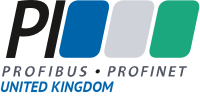Practical Aspects of PROFIBUS and PROFINET in Process
This seminar addresses the key practical issues arising from the use of digital ommunications technologies in process and hybrid industries. Covering the use of PROFIBUS and PROFINET in key application areas such as Pulp & Paper, Chemical, Utilities, Pharmaceutical, Oil & Gas today, it focuses on the practical aspects of using PROFIBUS in process industry applications from system design and hazardous area considerations through to maintenance and fault-finding.
Supported by live demonstrations of actual tools used in calibration and maintenance, the programme will be of great value to Instrument Technicians/Engineers, C&I Engineers and System Engineers involved in design, operation and maintenance of modern process plant.
If you’d like to learn how to simplify your PROFIBUS or PROFINET process application … don’t miss this one-day Practical Aspects of PROFIBUS and PROFINET in Process seminar.
Places are limited so don\'t delay - book today!
Draft Agenda
09:15 | Registration and refreshments | |
09:45 | Welcome and introduction to the table top exhibitions | Andy Smith, Endress+Hauser |
10:00 | Profibus International and the basics of PROFIBUS and PROFINET | Mark Freeman, Siemens |
10:20 | PROFINET in Process The number of installed PROFINET nodes is growing and growing. In this presentation we will discuss the use of PROFINET in process industry applications and compare its use to PROFIBUS which is a strong performer in the process industry. | Peter Brown, Siemens |
11:00 | PROFIBUS & PROFINET system design for the Process Industry This presentation examines the fundamental principles of good network design for process automation systems. The presentation will discuss the main factors that should be considered at the design stage of a project and how these can impact on the reliability and availability of the plant. Practical examples will show how facilities for health checking, fault-finding and maintenance can have a crucial impact. The presentation will also examine how properly thought out network monitoring and engineering access facilities can drastically affect plant up-time and thus profitability. | Andy Verwer, Verwer Training and Consultancy |
11.30 | Coffee and exhibition |
|
12:00 | PROFIBUS commissioning and maintenance Although PROFIBUS can provide robust, long lasting network reliability and resilience, special tools are recommended to check on the quality of each new installation and to help with the long term maintenance of the originally achieved levels of performance. In this talk we outline what can be expected of such tools, how and when they should be used and the important network performance indicators that can be checked. These tools are recommended for use during commissioning of new systems, before new system acceptance and on a regular basis thereafter in order to help ongoing reliability and successful operation. Collection and logging of comprehensive network performance reports from the test tool, at or soon after first system acceptance, can then provide an extremely valuable benchmark against which to compare all future measurements in the years ahead. | Richard Needham, Hi-Port Controls |
12:30 | The effects of EMC on bus networks Recently, a new phenomenon has appeared during the search for the causes of network failures. It has been noted data communication issues are becoming more frequent in situations where conventional network analysers do not reveal any weak points. It was the investigation of shield currents on industrial data communication lines that prompted the usual diagnostic approach to take a completely new turn. It soon became clear that the bus itself was in perfect condition, but was being affected by external influences that are generally referred to as “EMC interference“. Further extensive measurements, both in the bonding system and in the shielding connections of bus lines, revealed an association between high leakage currents (mostly of higher frequency) and bus failures. This presentation will explain the theory behind the measurements, the tools used to perform them and will provide limits against which all industrial networks should be checked against. | Peter Thomas, Control Specialists |
13:00 | Lunch and exhibition | |
14.00 | Device configuration and asset management tools | Phil Waterworth, Endress+Hauser |
14:40 | IIoT, Security & Ethernet Design The modern world means that controls systems are being integrated together within the plant with the aim of integrating everything into the management systems and IT system. This step change is due to IIoT and Industry4.0 but does bring other considerations to the table. What should we think about in relation to network design and security? | Peter Brown, Siemens |
15:20 | Summary and Questions | Andy Smith, Endress+Hauser |
15:30 | Close |
More information and registration


